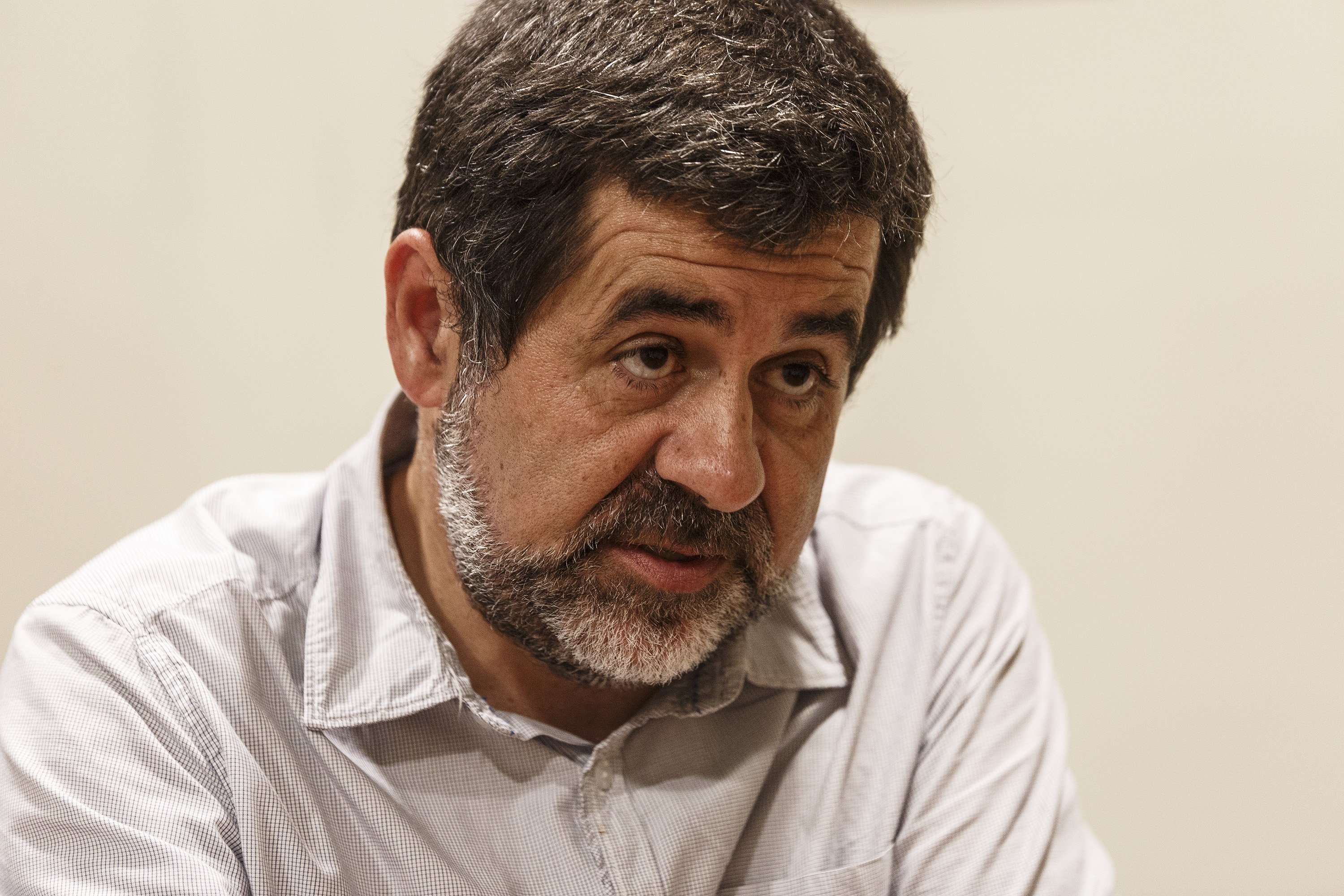Jailed Catalan independence leader Jordi Sànchez has been punished in prison for making an audio recording that was played during a campaign meeting for next Thursday's Catalan election. The recording was used during Friday's central campaign event in Barcelona for the Together for Catalonia (JuntsXCat) candidature, in which Sànchez occupies second list position. His lawyer Jordi Pina revealed the prison reprisals in declarations to the Catalan News Agency.
@jordialapreso: “El mur de la presó m'impedeix ser aquí. Com diu Espriu, tenim la raó contra bords i lladres, però amb la raó no en tenim prou, hem de guanyar a les urnes. Ho hem de fer per seguir avançant i per revertir les decisions de Rajoy i dels seus amics”#JuntsXCat pic.twitter.com/zuriSou9ik
— Together for Catalonia (@JuntsXCat) 15 of December 2017
@jordialapreso: “El vot a #JuntsXCat és el vot de la dignitat. Tenim la victòria del #president @KRLS a tocar dels dits. Ara no li podem donar l’esquena. L’única victòria que Rajoy no podrà amagar ni manipular és la victòria del president @KRLS”#JuntsXCat #21D pic.twitter.com/y9BObMBUco
— Together for Catalonia (@JuntsXCat) 15 of December 2017
@jordialapreso: "Demano el vot per #JuntsXCat. Si guanyem, treballaré incansablement i pacíficament com fins ara per aconseguir un país socialment just, econòmicament pròsper i solidari i nacionalment lliure. Si algú dubta, que pensi en Brussel·les o en la presó”#JuntsXCAT pic.twitter.com/fzC5TYkixa
— Together for Catalonia (@JuntsXCat) 15 of December 2017
Pina explained that Sànchez has been moved from module 1 to module 8 of the Soto del Real prison where he has spent the last two months, which has caused an "upset" for the Catalan leader. The lawyer also detailed that on Friday, Sànchez's cell and those next to it were searched for several hours because some media had stated that the audio played in the meeting was to be live and it was thought that he had a mobile phone. As well, a prison officer guarded Sànchez all day on Friday after it had been announced that he was going to take part in the JuntsXCat campaign event. Pina considers that the authorities "are losing their senses" and added that so far he does not know "the motive or juridical basis for the change" of module, a step necessary in order to be able to lodge an appeal on the matter.
Last Tuesday, Spain's Central Electoral Commission declared that it did not have the competence to decide on the request from the Together for Catalonia candidature that Jordi Sànchez and Joaquim Forn, imprisoned by order of the Spanish Supreme Court, be able to take part in the campaign. However, Commission chair Segundo Menéndez Pérez issued an individual opinion — an unusual step — to which Commission member Inés Olaizola also added her support, considering it appropriate that Sànchez and Forn were able to record messages from prison or grant interviews.
In the audio recording, Sànchez, former president of Catalan National Assembly, argued that there was only one "political adversary" that independence supporters were facing in the Catalan election - and it was not the three unionist candidates Inés Arrimadas, Miquel Iceta and Xavier García Albiol - but rather, the Spanish prime minister, Mariano Rajoy. This was Sànchez's first participation in the election campaign.
On Friday last week, Together for Catalonia asked the Electoral Commission for permission to allow Forn and Sànchez to leave prison to take part in campaign events or, if that was not possible, for them to be able to record messages to be broadcast in electoral meetings. Even though the Commission declared itself incompetent to resolve the question and deferred to the Supreme Court, the Commission chair, Menéndez Pérez, argued in his individual opinion that he would not allow them to leave the prison but would authorize the recording of messages and granting of interviews. In this way, he said, the right of all candidates to take part in the elections on 21st December under equal conditions would be confirmed.

